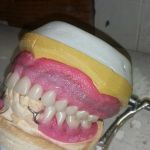Understanding Wisdom Teeth Removal: Everything You Need to Know
- 1. Why Wisdom Teeth Are Removed
- 2. The Wisdom Teeth Removal Process
- 3. Recovery and Aftercare
- 4. Cost of Wisdom Teeth Removal
- 5. When to See a Dentist for Wisdom Teeth
Why Wisdom Teeth Are Removed
Wisdom teeth, also known as third molars, typically emerge in late adolescence or early adulthood. While some people have no issues with their wisdom teeth, others experience pain, infection, or discomfort. In these cases, dentists often recommend removing them to avoid further complications. The removal of wisdom teeth is a common procedure, usually recommended when the teeth are impacted, meaning they do not emerge properly from the gum line, or they cause overcrowding, which can lead to alignment problems.
Additionally, wisdom teeth can lead to gum infections, tooth decay, and other dental issues. By removing them early, you can prevent these potential complications and maintain better oral health in the long term.
The Wisdom Teeth Removal Process
The process of removing wisdom teeth varies depending on the situation. In most cases, the procedure is done under local anesthesia to numb the area. For more complex cases, such as impacted wisdom teeth, general anesthesia or sedation may be used to ensure you are comfortable throughout the process.
The dentist or oral surgeon will make an incision in the gum to access the tooth, remove any bone blocking the tooth, and carefully extract it. Depending on the complexity, the procedure can take anywhere from 30 minutes to an hour.
It is important to follow your dentist’s instructions carefully before and after the procedure to ensure a smooth experience. For example, you may be advised to avoid eating or drinking for several hours before the surgery, and to arrange for someone to drive you home afterward.
Recovery and Aftercare
After wisdom teeth removal, you will need some time to recover. The first few days may involve swelling, discomfort, and bleeding, which is normal. Your dentist will provide instructions on how to manage these symptoms, including using ice packs to reduce swelling and taking pain medications as needed.
Here are some tips to ensure a smooth recovery:
- Rest and avoid strenuous activities for at least 48 hours after the procedure.
- Stick to soft foods and avoid chewing near the extraction site.
- Keep your mouth clean by gently rinsing with warm salt water, but avoid brushing the extraction area until it heals.
- Follow your dentist’s advice regarding pain management and use prescribed medications as directed.
Most people recover from wisdom teeth removal in about a week, but full healing can take a few months. It is essential to attend follow-up appointments to ensure the area heals properly and to prevent complications.
Cost of Wisdom Teeth Removal
The cost of wisdom teeth removal can vary depending on several factors, such as the complexity of the procedure and whether or not sedation is required. On average, you can expect to pay anywhere from $225 to $600 per tooth for simple extractions. For impacted wisdom teeth, the cost may range from $800 to $3,000 or more.
It is a good idea to check with your insurance provider to see if the procedure is covered. Many insurance plans offer partial coverage for wisdom teeth removal, especially if it’s deemed medically necessary. If you don’t have insurance, your dentist may offer financing options or payment plans to help cover the costs.
When to See a Dentist for Wisdom Teeth
If you experience pain, swelling, or difficulty opening your mouth, it’s important to schedule a visit to your dentist. They will evaluate the situation and determine if your wisdom teeth need to be removed. Early evaluation is key to preventing complications, such as infections or misalignment.
If your dentist recommends removal, don’t wait too long to schedule the procedure. Waiting can lead to more complex extractions and a longer recovery time.
Explore More on Wisdom Teeth Removal
For more information about wisdom teeth removal and to find professional dental services, visit Dentistry Toothtruth. Whether you’re considering a procedure or just need advice, it’s always important to consult with a qualified dentist to ensure the best care.







 Aspen Dental - Oklahoma City, OK4.0 (618 review)
Aspen Dental - Oklahoma City, OK4.0 (618 review) Lakeview Dental Care of Cherry Hill4.0 (931 review)
Lakeview Dental Care of Cherry Hill4.0 (931 review) TwinCare Dental3.0 (94 review)
TwinCare Dental3.0 (94 review) Community Health Centers4.0 (206 review)
Community Health Centers4.0 (206 review) Garden State Dental of East Brunswick4.0 (598 review)
Garden State Dental of East Brunswick4.0 (598 review) Classic Dental Laboratory0.0 (0 review)
Classic Dental Laboratory0.0 (0 review) The Importance of Oral Health Education During Pregnancy for a Healthy Pregnancy
The Importance of Oral Health Education During Pregnancy for a Healthy Pregnancy Best Tips for Brushing Your Teeth Properly for Healthy Gums: Essential Techniques for Oral Health
Best Tips for Brushing Your Teeth Properly for Healthy Gums: Essential Techniques for Oral Health Why Skipping Dental Checkups Can Lead to Bigger Oral Health Problems
Why Skipping Dental Checkups Can Lead to Bigger Oral Health Problems Advantages of Porcelain Dental Restorations
Advantages of Porcelain Dental Restorations How Can Diabetes Cause Tooth and Gum Problems? Preventing and Managing Oral Health Issues
How Can Diabetes Cause Tooth and Gum Problems? Preventing and Managing Oral Health Issues Healthy Habits for Promoting Good Oral Health and Hygiene: Tips for a Healthy Smile
Healthy Habits for Promoting Good Oral Health and Hygiene: Tips for a Healthy Smile